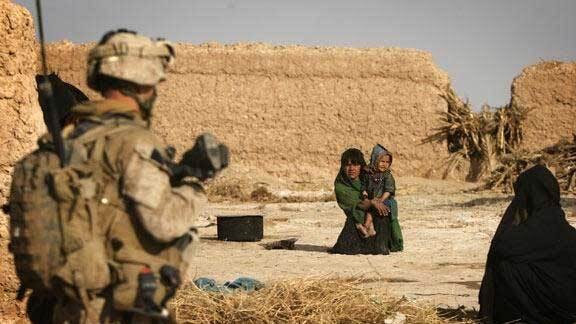Afghanistan destroyed by warlords and the war on terror

In December 2013, on the occasion of the last of the Australian troops leaving Afghanistan, Australian prime minister Tony Abbott said of the 12 year long war and occupation: “[Looking] at the benefits for our country, for Afghanistan, and for the wider world, then my conclusion is yes, it has been worth it …
“Uruzgan [province] today is a very significantly different and better place than it was a decade ago. The infrastructure is better, the government functions much better; girls go to school, medical facilities are in place.”
A new report released by Human Rights Watch contradicts this assertion in harrowing detail. Today we shall all die: Afghanistan’s strongmen and the legacy of impunity paints a picture of a country torn apart by lawlessness, endemic human rights abuses and ethnic conflict.
The report contains numerous accounts of “mass killings, murder, rape, torture, beatings, enforced disappearances, theft, and arbitrary detention”. Overwhelmingly, these acts are alleged to have been carried out by “persons in positions of authority or persons who operate with their backing” who “occupy positions in almost every level of government, from local militia commanders to ministerial rank” and operate with “rampant impunity”.
This impunity, the report goes on to stress, “hinges on the inability or unwillingness of the Afghan government and its institutions, including the military, police, and courts, to challenge the strongmen and militias who operate throughout much of the country …
“President Hamid Karzai installed many powerful warlords and failed to confront others, while many others have been funded by and worked alongside international forces.”
This outcome is exactly that predicted by those who opposed the initial invasion of the country and resisted the propaganda about “saving women”, “fighting terrorism” and “bringing democracy”. Despite the West’s professed concern about the position of women in Afghanistan and the repressive rule of the Taliban, it was clear that it was in fact their strategic economic and political interests that the Western powers were pursuing by invading Afghanistan and later Iraq, not any lofty humanitarian goals.
As US government advisor Richard Pearle told the Chicago Sun-Times at the time: “After we have destroyed the Taliban, the message to the Syrians, the Iraqis, the Iranians, the Yemenis, the Sudanese and others should simply be, ‘You’re next’.”
It therefore comes as no surprise that the conditions of life for civilians in Afghanistan are little improved from that prior to invasion. Vicious warlords are tolerated so long as they are prepared to do the bidding of the Western powers.
One example in HRW’s report is that of Asadullah Khalid, who was chief of the National Directorate for Security until December 2012 and who previously worked with the US in a variety of senior government positions.
According to HRW, there have been numerous “credible reports that Khalid has been involved personally in torture, extrajudicial killings, and sexual violence against women and girls, and has operated private prisons during his time as governor in Ghazni and Kandahar”.
Such acts have earned him a “well-known reputation” both in Afghanistan and beyond. Yet when he was flown to the US for medical treatment in December 2012, president Obama personally visited him in hospital, so loyal an ally had he been to the US during the war and occupation.
Many of the recommendations contained in HRW’s report pertain to the West’s failure to comply with basic human rights protections. One of these involves the implementation of the Leahy Law, which “prohibits the provision of military assistance to any unit of foreign security forces where there is credible evidence that such a unit has committed gross violations of human rights”.
The HRW report suggests the US is in violation of the Leahy Law, through its funding and support for various militias and strongmen in Afghanistan. Human rights violations are simply not considered problematic when committed in the pursuit of Western strategic objectives.
The moral and political debasement of modern capitalism is such that the exposing of these crimes will likely have little impact on the policy and approach of the Western powers towards Afghanistan.
But for those who stood against the march to war, this report is an unfortunate vindication. It highlights the need to take on Western imperialism and the depravity of the system that fuels it.